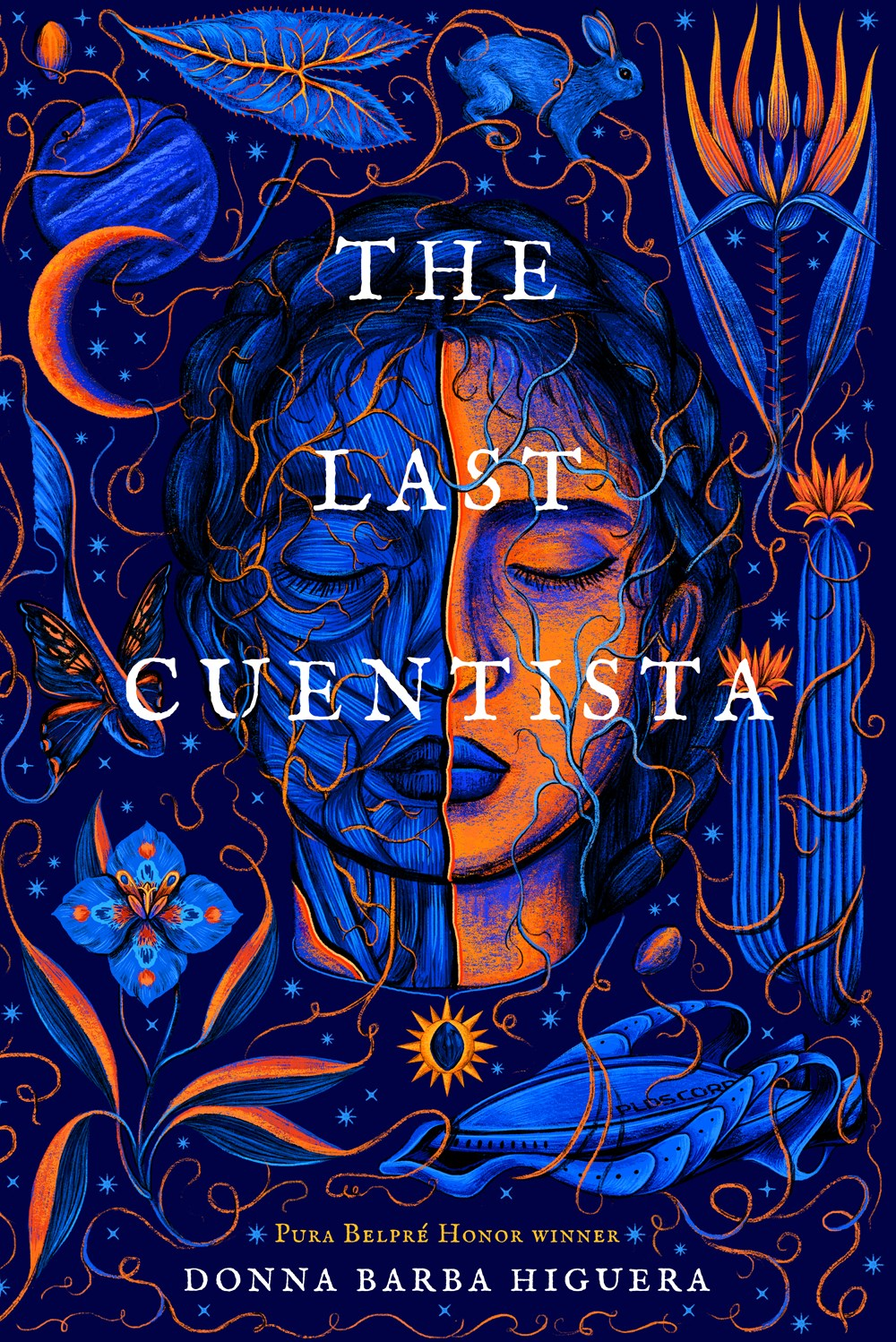Can stories save lives? This year's Newbery Medal winning book packs a punch!
ABOUT THE BOOK
There lived a girl named Petra Peña, who wanted nothing more than to be a storyteller, like her abuelita.
But Petra's world is ending. Earth has been destroyed by a comet, and only a few hundred scientists and their children – among them Petra and her family – have been chosen to journey to a new planet. They are the ones who must carry on the human race.
Hundreds of years later, Petra wakes to this new planet – and the discovery that she is the only person who remembers Earth. A sinister Collective has taken over the ship during its journey, bent on erasing the sins of humanity's past. They have systematically purged the memories of all aboard – or purged them altogether.
Petra alone now carries the stories of our past, and with them, any hope for our future. Can she make them live again?
REVIEW
After hearing good things about it from other avid readers, I decided I need to read The Last Cuentista. When it won the Newbery Medal, I immediately moved it up to the top of my TBR list. Higuera's story has left me still trying to catch my breathe. Admittedly I am not a real big science fiction reader as I often have a hard time accepting made-up science. And I did have that problem with this book, especially since the characters take off in a space ship in 2061 which is only forty years down the road and the technology mentioned isn't even a little bit close to actually existing. But I tried to put my doubts aside and just enjoy the story about Petra and her family. Petra's parents are both scientists who have been chosen to be part of a very selective group to leave Earth and found a settlement on another planet to ensure the human race continues in the face of Earth's eminent destruction. Petra doesn't want to go because her beloved storytelling grandmother must remain behind.
Petra is especially annoyed about having to 'study' botany and geology while she's in stasis for 380 years. She wants to become a storyteller like her grandmother. Thanks to the efforts of her 'monitor' Ben, she does receive some stories during her sleep. But when she wakes up centuries down the road, she discovers that nothing is the way it was supposed to be. A group called the Collective has taken over the ship and created a society where individuality is unacceptable and everything is done for the good of the Collective. As Petra hides the fact that her memories are intact, she searches for her family and a way to survive without losing the stories that mean so much to her. While the science is iffy (as in most science fiction--I mean no human-made ship would last 380 years without needing major repairs along the way), the story is very compelling. Petra's heart and determination in the face of devastating changes is remarkable and admirable. Her efforts to help the other children in her group help her carry on. And the mix of flashbacks, folktales, and dreams keeps the story fresh and fascinating. I found myself in tears more than once as I empathized with the enormous challenges that Petra faced. I would recommend the book for more experienced readers as the various elements make it a more complex read. The Spanish phrases scattered throughout the book are generally explained in the context of their use. There is one exception to that but there's a reason, that one phrase isn't explained at first.
I found The Last Cuentista to be a powerful tale of finding hope and courage through stories and memories. Though heart-breaking at times, the reminder that people need stories and relationships and emotions and not just knowledge is a important one. This is a book that will leave you thinking long after you close the cover.




Comments
Post a Comment